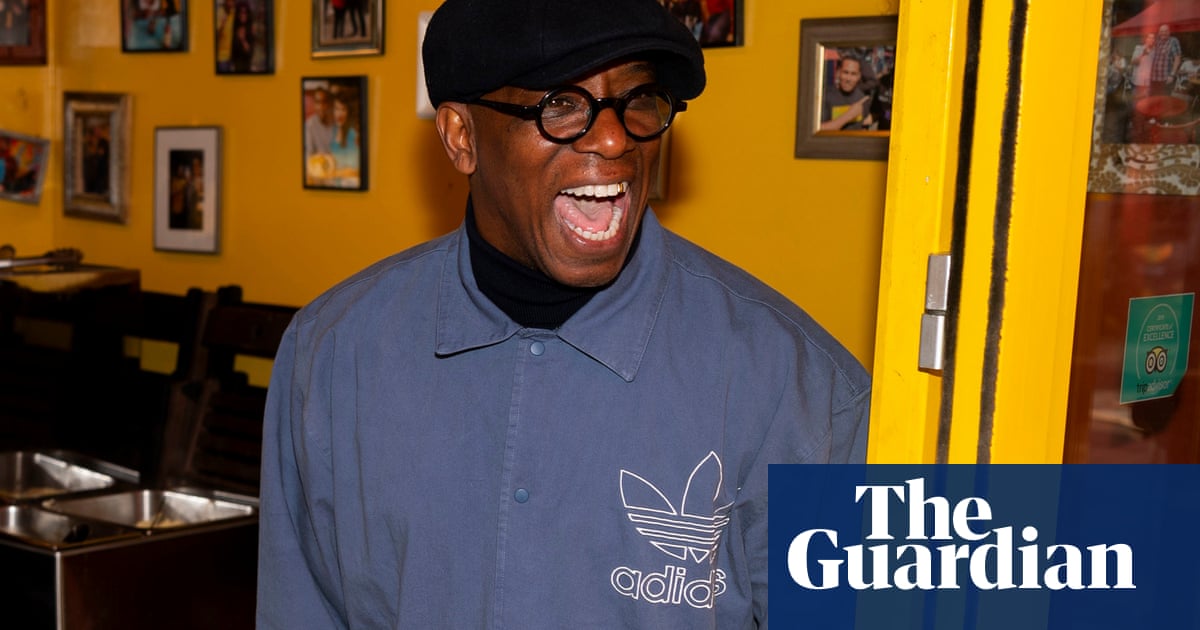
here was always a cool, rational, weighted intelligence in Ian Holm. On screen, he was never exactly a heart-on-sleeve performer; he did not need or even appear to want the audience’s sympathies. Holm could be a mandarin and almost priestly presence, but always with a pressure cooker of emotion inside. He brought a commanding strength and a stillness to his work, a less-is-more economy that gave him what few theatrical knights have had since Olivier: equal success on stage and screen. He was a character actor with star quality.
It is funny that younger cinema audiences knew and loved Ian Holm for perhaps the most atypical casting of his career: as Bilbo Baggins in Peter Jackson’s Lord of the Rings and Hobbit movies.
He plays the older Bilbo, who potters and maunders about the place with great geniality and charm, like a distracted Oxford don who happens also to run MI6. There was something beguiling in seeing Holm’s habitually stern features transformed into Hobbity gentleness.
His other roles were rather different. He broke out in his mid-40s, having already established an accomplished career in film, TV and theatre. Ridley Scott cast Holm in his legendary 1979 sci-fi classic Alien, about the spacecraft that gets an unwelcome, parasitic visitor. Holm played Ash, the ship’s science officer: he is a calm technocratic figure who remains notably unemotional for reasons that will become plain in the film’s great shocking reveal. In unforgettably gruesome circumstances, the crew ask Ash what he thinks about their prospects and in a frazzled and gurgling voice he says: “I can’t lie to you about your chances. But you have my sympathies.” It was a great moment for Holm.
But his biggest success came a couple of years later, in the colossally successful British movie Chariots of Fire, written by Colin Welland and directed by Hugh Hudson. He played the Geordie-born professional sports trainer Sam Mussabini who, controversially, coaches the ambitious Cambridge undergraduate sportsman Harold Abrahams, played by Ben Cross. It was a heartwarming performance by Holm, and it earned him an Academy award nomination as best supporting actor.
Mussabini is fussy, tetchy, but fierce about his work – with a vocational teacher’s insistence on high standards and a tendency to take pupils’ failings personally. Mussabini wears his straw boater at all times indoors, even when he’s massaging Abrahams. And when Abrahams wins, he punches a hole in that hat for sheer joy. Holm allows us to see how emotionally vulnerable Sam has become, and that Abrahams is like a son to him.
In the 1980s, Holm developed a steely, sinewy presence in the cinema: he brought a definite stringency or severity. Holm was the hard-drinking solicitor Stanley Pilborough in David Hare’s haunting drama Wetherby (1985); and the same year he was in Terry Gilliam’s surreal fantasia Brazil, in which he played Mr Kurtzmann, the boss of Sam (played by Jonathan Pryce), the film’s hapless hero. In that, Kurtzmann was a stressed bureaucrat in a tight suit and with an odd little moustache. He looked like Peter Sellers’ shop steward Fred Kite in the Boulting brothers’ I’m All Right Jack.
It was his third film in 1985 that gave us one of Holm’s best performances: the superb crime drama Dance With a Stranger, written by Shelagh Delaney and directed by Mike Newell. It featured Miranda Richardson as Ruth Ellis, the brassy blond nightclub hostess and the last woman in Britain to be hanged for murder; Rupert Everett played her sulky, haughty boyfriend, David Blakeley. Holm has the thankless but fascinating role as Desmond Cussen, Ruth’s poor lapdog gentleman caller – humiliated and emasculated – who remains slavishly in love with Ruth, despite her obsession with the younger and more glamorous Blakeley.
It is Cussen who cares about the children Ruth has from a previous marriage, and he can see Ruth’s self-destructive vanities all too clearly. He hates himself and hates her for how he feels – and very much hates arrogant smoothie David.
There is unforgettable ferocity in his rage when Everett’s David upsets Ruth’s young son, Andy, by inventing horrible things that are going to happen to him at boarding school. “He’s teasing you, Andy!” Desmond snaps, a whiplash of emotion. Interestingly, it is Holm’s Desmond who looks like the one capable of murder.
Holm went on to have great roles in David Cronenberg’s eXistenZ and Naked Lunch, in Luc Besson’s The Fifth Element, in Kenneth Branagh’s Frankenstein and also Martha Fiennes’s Chromophobia, in which he had a startling, black-comic sex scene with Penélope Cruz.
For me, his greatest and most complex role was in Atom Egoyan’s 1997 film The Sweet Hereafter, playing Mitchell Stephens, the lawyer who mysteriously shows up in a small Canadian town where locals are grieving the deaths of dozens of children in a school-bus crash. Stephens tries to persuade everyone to work up the righteous rage necessary to sue the bus manufacturers.
He is cool and lawyerly, even passionless in rimless glasses: a rare instance, in any movie, of being a figure who is disturbing yet not obviously evil. His lawyer is partly an angel of vengeance, partly a bizarre destructive parasite who appears in the community stirring up unimaginable pain, reopening psychological wounds that had begun to heal, encouraging the bereaved parents to feel angry and then to channel that anger into a class-action lawsuit – and he will take a third of whatever payout results. However, it appears that his entire vocation is displacement activity, a need to right the wrongs in his personal life.
This was Ian Holm’s finest hour. But I have the softest spot for his lovely performance in Chariots of Fire, as the kindly yet strict teacher who lives to see his pupil become a world beater – and becomes a world beater himself.












